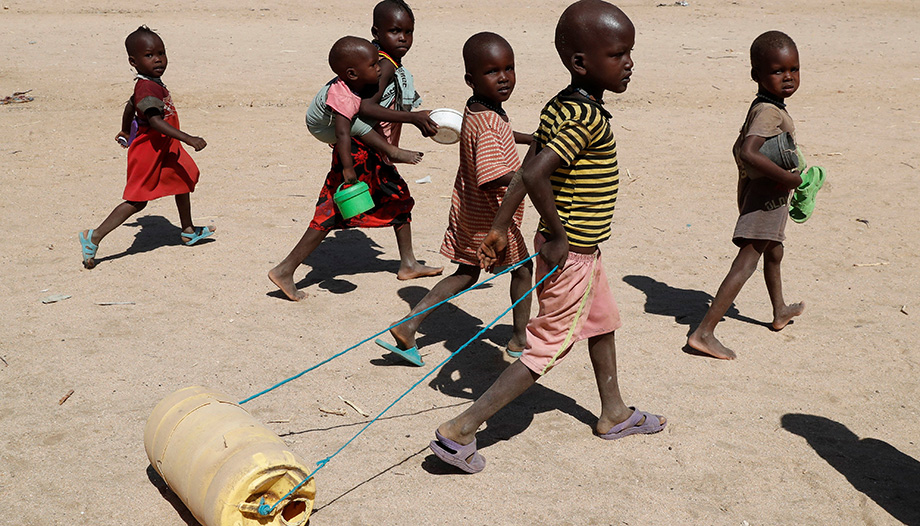From June 22 to 25, politicians, ecology experts, environmental scholars and artists will take turns in performances, debates, exhibitions and conferences, framing the environmental theme in a universal perspective, considering creation as a "common good that must be defended in the present time and for future generations," explain the organizers.
The initiative is promoted for the third year by the "Rocca dei Papi" Association, founded in December 2019 by Archbishop Fabio Fabene, then undersecretary of the Synod of Bishops and now secretary of the Dicastery for the Causes of Saints. It takes its name from the medieval fortress that dominates the valley of Viterbo, preserving vestiges of pre-Christian settlements.
For many centuries, the Rocca was a center from which the popes administered the political affairs of their dominions in Central Italy. The Association that bears his name, for its part, was created to enhance the value of a territory that, for its geomorphological, historical, cultural, artistic and anthropological qualities, as well as for its rich religious tradition, lends itself well to communicate and disseminate the principles linked to the care of the common home in the wake of the magisterium of Pope Francis.
Water in the center
This year's edition, dedicated as we said to the theme of water, will be inaugurated with a keynote lecture by the economist Stefano Zamagniformer president of the Pontifical Academy of Social Sciences and one of the "fathers" of civil economy, highly appreciated by both Benedict XVI and Bergoglio.
This will be followed by a theatrical performance and a performance by the Papal Chapel Choir of Assisi. The following day, various professionals will discuss how to valorize the land and protect the water resources available to citizens, while in the afternoon, the Bishop of Viterbo (the diocese to which the municipality of Montefiascone belongs) will give a lecture on water as "a gift that quenches thirst and vivifies". Other speeches will explore the theme of water in communication, business and art.
Laudato si'
The reference to water in the Encyclical Laudato si' appears 39 times, from the very first lines. It is present in reference to the "wounds" inflicted on creation through the many types of pollution, and there is also a whole section devoted to what is called "an issue of paramount importance," as in numbers 28-31. For example, there is discussion of the poverty of public water in Africa, and the problem of its "quality" in reference to the water available to the poor, which generates not only suffering, but in some cases also infant mortality.
In his second Encyclical, Pope Francis makes it unambiguously clear that access to safe and potable water is rather "an essential, fundamental and universal human right," a condition for the exercise of all other rights, and as such must be absolutely safeguarded. If only because water itself, along with, for example, the soil and the mountains "is God's caress" (n. 84).
The time of creation
A warning to the international community (see nn. 164-175) that is also reiterated in the recent Message for the upcoming World Day of Prayer for the Care of Creation, which will take place as usual on September 1 together with the other Christian communities. This year's theme is inspired by the words of the prophet Amos (5:24): "Let justice and righteousness flow like an everlasting stream".
An opportunity to "create a more sustainable and just world," which, according to Pope Francis, to become so, must see "our hearts," "lifestyles" and the "public policies" that govern societies transformed. Hearts that are transformed by considering creation no longer as an "object to be exploited" but as a "sacred gift of the Creator" to be safeguarded.
Regarding lifestyles, we must learn to waste less and avoid unnecessary consumption, improving habits and economic choices and "practicing joyful sobriety".
Finally, public policies, thanks to which it is necessary to put an end to "the era of fossil fuels" to curb global warming, a commitment that world leaders had made on several occasions, both with the Paris Agreement and at the various COP summits, but which to this day remains unfulfilled.
"Let us live, work and pray so that in our common home life may once again abound," Pope Francis concludes in the Message, entrusting this renewal to the guidance of the Holy Spirit.







